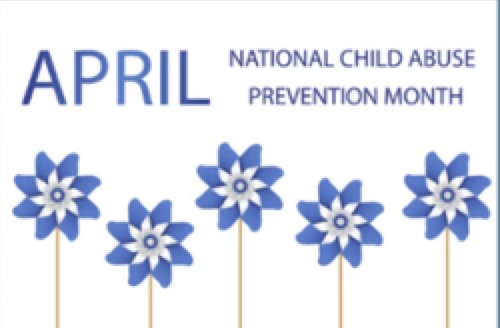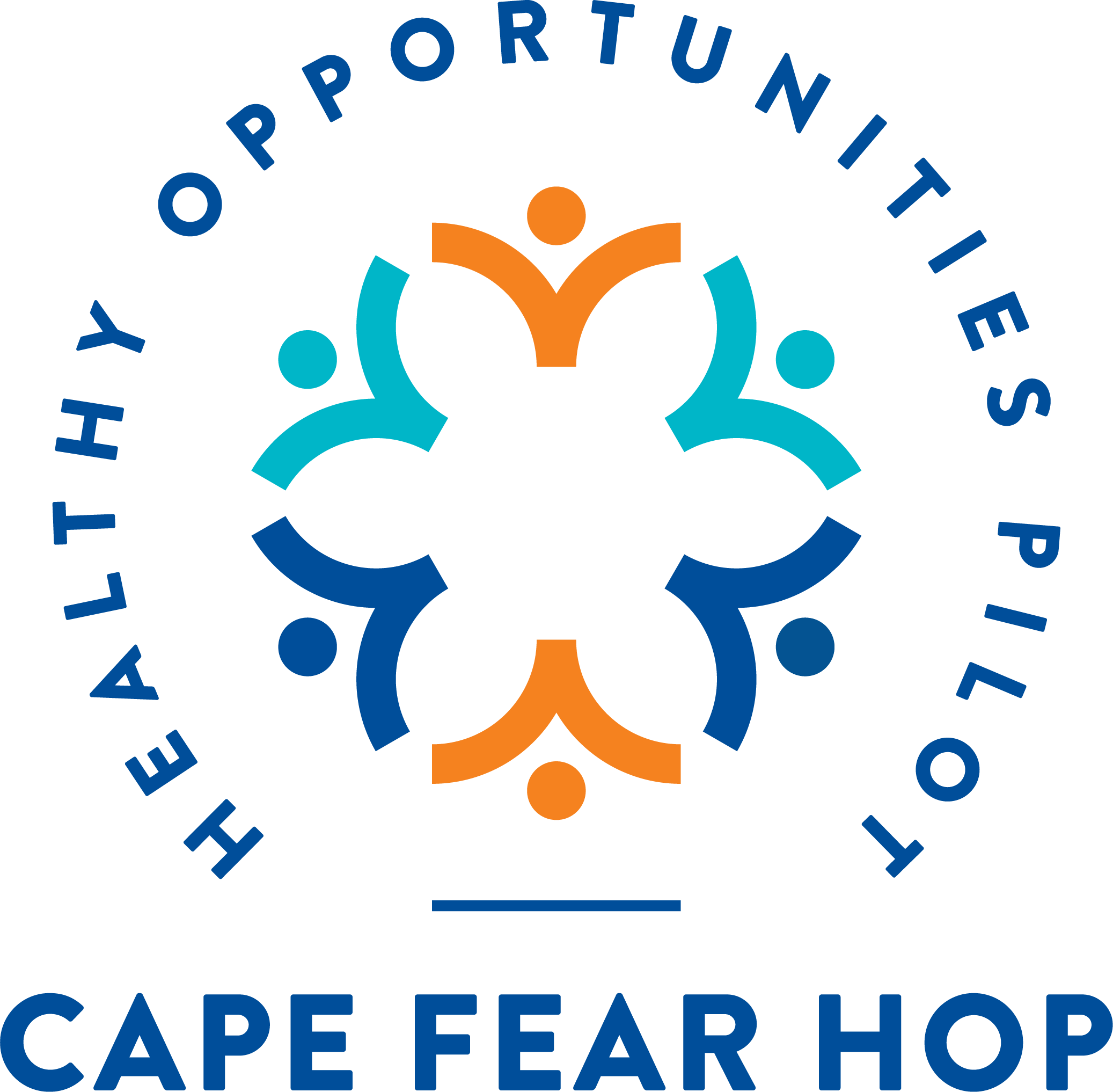April is National Child Abuse Prevention Month and this year’s theme is “Building a Hopeful Future, Together.”
Kevin Bacher, Community Care of the Lower Cape Fear’s Healthy Opportunities Pilot (HOP) program manager for two separate sectors, interpersonal violence (IPV)/toxic stress and transportation, knows the only way to tackle IPV is to work together. Cape Fear HOP is one of three Network Leads in North Carolina piloting evidence-based non-medical interventions including IPV and toxic stress. Kevin works with network Human Service Organizations, or HSOs, to provide support to eligible enrollees in interventions including Holistic High Intensity Enhanced Case Management, Violence Intervention, Parenting Curriculum and linkages to Health-Related Legal Supports.

The Cape Fear HOP network also reaches out to schools to ensure they know about
services available to students.
Kevin says that often people think that child abuse is physical abuse, primarily at the hands of a parent. But there are many types of abuse, more recently including cyberstalking, bullying and witnessing abuse such as violence in schools. Interpersonal
violence, which children can also experience in their homes, includes sexual, physical, emotional and psychological abuse and financial abuse, which occurs when someone limits someone else’s freedoms by controlling their money.

Research shows that children who witness IPV are at increased risk for depression, developmental issues and mood and social disorders; diabetes, heart disease, bowel diseases and other life-threatening physical ailments they may get as adults; and are at greater risk of continuing the cycle of IPV in their own intimate relationships.
HOP HSOs provide children (as well as teens and adults) who qualify specific non-
medical interventions like violence intervention services which includes therapeutic
counseling and teaching them how to avoid situations that may turn violent and what to
do if they do.
Kevin points to statistics on North Carolina’s public school crime/violence, which grew
by more than 18 % during the 2022-2023 school year.
“The child doesn’t have to be a direct victim of any of these crimes to be at risk for
violence or to qualify for violence intervention,” Kevin points out. “I think it’s important to
understand that these kids are dealing with a lot and it’s a lot scarier than what we want
to think.”
Schools, however, often provide a place where children have someone they trust to talk
to about what they may be experiencing. And even if they are not qualified to receive
HOP services, reports of child abuse are taken seriously and there are other resources
available to children.
Cape Fear HOP HSOs work with school systems to talk about the services provided to
qualified HOP members. Often, HOP services are related. For instance, if HOP doesn’t
provide a service, it may be available through one of the HOP HSOs through another
pathway. The HOP network is very valuable in helping people in the counties it serves
with a wide variety of needs such as housing, food and transportation.
To call attention to National Child Abuse Prevention Month, Kevin will ask health and
community partners to promote Pinwheels for Prevention. This campaign uses
pinwheels, which represent childlike whimsy and lightheartedness, to show support for
the nation’s children.
And while the national observance calls attention to the issue each April, HOP staff and
HSOs are working for children every day.
